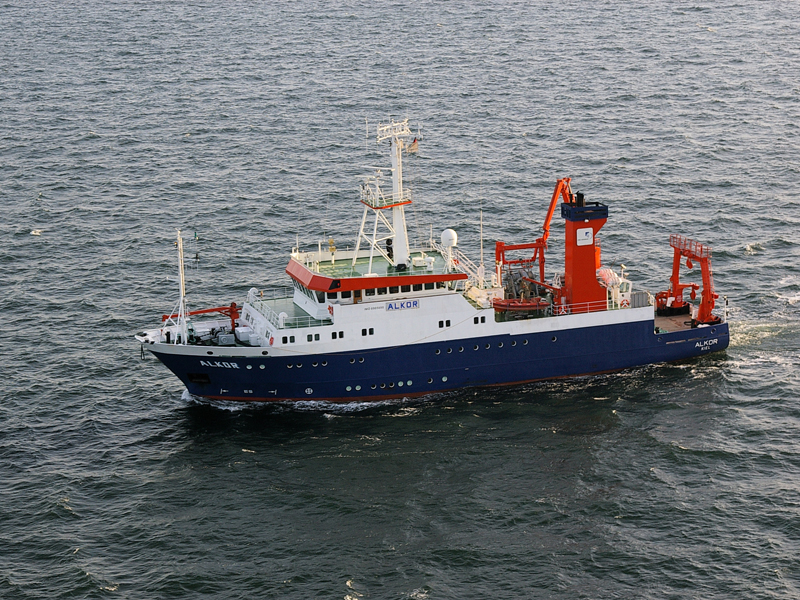ALKOR AL473
- Area:
- Baltic sea
- Time:
-
09.03.2016 - 27.03.2016
- Institution:
- GEOMAR
- Chief scientist:
- Stefan Sommer
Working area of expedition AL473 is the Gotland Basin in the eastern Baltic Sea. The sediments there are particularly important for the nutrient release and therewith for eutrophication and spread of hypoxia. Under anoxic conditions nutrients are mobilized from the seabed, which via positive feedbacks stimulate primary production and in effect the benthic-pelagic oxygen consumption.
Despite this significance measurements to determine internal nutrient loading were rarely conducted. Measurements of the previous Alkor cruises AL355 (June 2010), AL422 (Aug./Sept. 2013), and the Poseidon cruise POS487 (Juli/August 2015) indicated that beside the deep basin, sediments just below the oxycline were particularly important for the release of ammonium and phosphate. These sediments are almost entirely covered with microbial mats of sulphur oxidising bacteria belonging to the genus Beggiatoa. In December 2014 a massive inflow of saline water occurred which ventilated the deep Gotland Basin in April 2015.
During AL473 studies are conducted at the same sites of previous Alkor and Poseidon cruises along a depth transect which comprise water depths from 65 to 180 m and is covering oxic to anoxic conditons. Major aims of the cruise are in situ flux measurements using benthic lander with particular regard to nitrogen and phosphorous. Major aspects are flux measurements in the presently oxygenated deep basin. Another major aim is to obtain flux measurements during winter as previous cruises we conducted during summer. Furthermore, the cruise will include microbiological investigations of microbial mat systems, which unexpectedly populate the ventilated deep basin.
Theproposed investigation will be conducted within the framework of the Helmholtz Alliance ROBEX and the SFB754.



